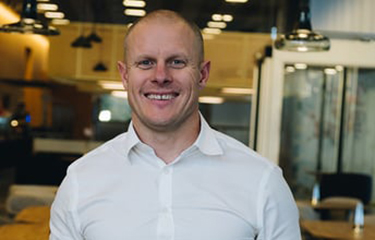Aker BioMarine says “course set for growth” after positive 2022

Lysaker, Norway-based biotech and krill-harvesting company Aker BioMarine released its annual report on 28 March, 2023, a year in which it turned around its performance and saw significant improvements in earnings.
The company posted its full-year results for 2022 in late February, showcasing an increase in revenue and earnings before interest, taxes, depreciation, and amortization (EBITDA) that returned it to positive performances. The company posted a net loss in Q4 of 2021 and for the year overall.
Aker BioMarine CEO Matts Johansen said the performance highlighted the company’s “can do and grind through” attitude after what he called a “challenging 2021.”
“I am pleased to say that that Aker BioMarine was able to turn the ship around and show growth in 2022,” Johansen said. “Years of hard work, investments, and patience has finally gotten the company to scale, and our course is now set for further growth.”
Johansen cited improved sales, harvesting, and efforts to uncover efficiencies for the turnaround in performance.
“The improvement program that was initiated in late 2022 is targeting to significantly reduce cost, in addition to strengthen the core business platform and create a more-robust company set for further growth,” he said.
The company is anticipating the opening of a new protein plant in Ski, Norway, which Johansen said is “on track for a mid-2023 opening.” The new plant is a pilot facility that Aker BioMarine said will allow the company to develop a “highly concentrated protein isolate.” The facility will also include a research and innovation center that will focus on long-term products.
The company said research and innovation is a core tenant of the business, with 25 new patents in 2022 bringing the company’s total number patents to 101.
Johansen said Aion, a company “spun out of Aker BioMarine,” as a center of innovation that has helped the company make progress on scaling “circular plastics” and help the company with its own plastic waste challenges. Aion announced a collaboration with Seattle, Washington, U.S.A.-based American Seafoods on recycling retired midwater-trawl nets, one of many instances of the company using technology to reduce plastic waste.
A solid performance in Aker's core activities provided a foundation for the company’s growth, Johansen said.
“Harvesting delivered a new all-time high production record, exceeding production the year before by 19 percent,” he said. “Thanks to an efficient supply chain and logistics operation, we also made significant strides in animal health and nutrition in 2022.”
The company said it accounts for “around 70 percent” of the global krill catch, despite holding a minority in the total number of fishing vessels targeting the species.
The company also highlighted key milestones for 2022, including approval for its Qrill Aqua product by both the Canadian Food Inspection Agency and the U.S. Food and Drug Administration, opening the product to the North American market.
The future is not without challenges, Aker BioMarine said. Access to krill harvesting in the Antarctic, which is governed by the Commission for the Conservation of Antarctic Marine Living Resources, could shift as the commission has come under fire for its refusal to approve any marine protected areas. Increased competition from China, as well, could impact its ability to access and harvest krill – though China is facing financing problems for its krill fishery that have in some instances forced it to delay the construction of new vessels.
The company also expressed concern over the possibility of a coming global recession – which experts have said is “penciled in for this year” – as a potential obstacle, but that it is doing “relentless work” to keep fixed and variable cost bases on a sustainable level and identify areas it can cut costs if sales decline.
Photo courtesy of Aker BioMarine






Share